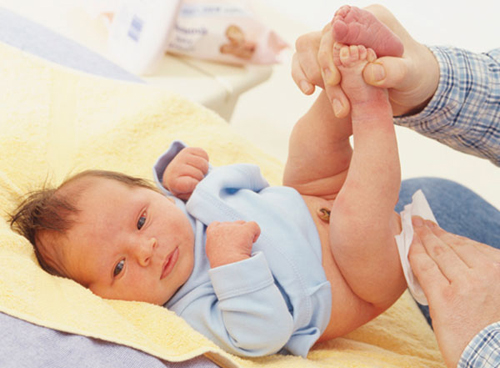Keepsakes: creating memories
When you are wrapped
up in the day-to-day demands of caring for your baby and every new
experience seems special and important, you think that you will never
forget these times. However, children grow
and develop so fast that, unless you take the time to record things in
some way, you are unlikely to remember every detail. A little effort now
will bring you and your family endless pleasure for years to come.
Precious reminders
When things are not
going as well as you hoped, looking at your keepsakes and reminders will
help you appreciate how far you’ve come as a family and how much you
have achieved as parents. Keepsakes can help you realize that some of
the worst times are really just very short phases. They may also be
fascinating to your children when they are older.
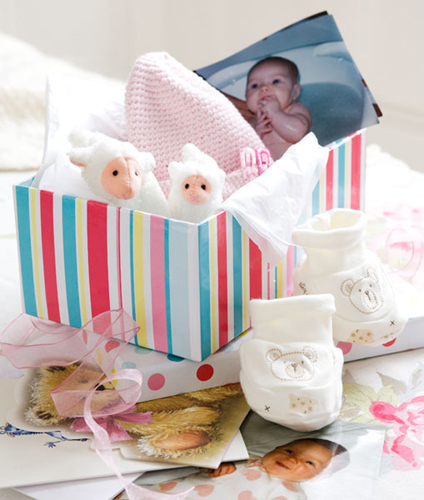
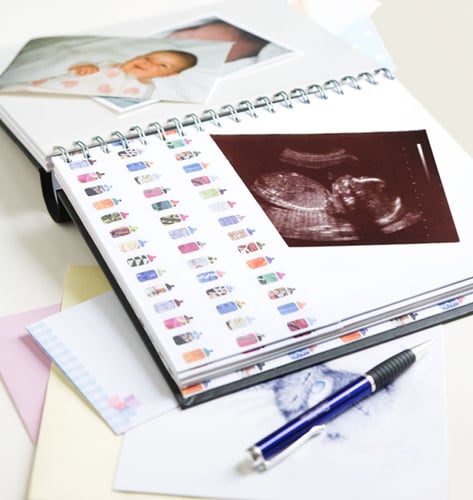
Buy a quality newspaper to show what was happening in the world when your child was born.
Write down your birth story.
Buy the number one single/album in the charts.
Keep
small mementos, for example, your baby’s first outfit, a lock of hair, a
selection of greeting cards, but be sensible—you cannot keep
everything!
Keep a
baby book or simply take a few minutes to write down what your baby is
doing, how you feel, and how you are spending your days—it’s these
little things that you will forget.
Take
plenty of photos and videos. Digital photos have a number of
advantages: They save you time and money in processing, you can email
them to friends and family, and you can date-stamp them so you know
exactly how old your baby was at the time.
Involving dads Creating a partnership
Ideas about a father’s role
in the family have changed a lot over recent years: Many men now feel
that it is important for them to be equally involved in day-to-day
childcare tasks. Becoming a father is one of the most exciting and
life-changing events in any man’s life.
| Q: |
What are the benefits?
|
| A: |
Research suggests that, over time, children with involved
fathers tend to have better emotional health, perform better at school,
engage in less anti-social behavior, and have more successful
relationships. With your support, your partner will benefit from being
able to take a well-earned break; she is also less likely to suffer from
postpartum depression, and may be more successful at breastfeeding. You
will build a stronger, closer relationship with your baby, improve your
childcare skills, gain confidence, and experience a greater sense of
satisfaction with your parenting role. Successful parenting is a
partnership, and sharing the workload—in whichever way you choose—will
help to maintain a strong relationship and keep stress levels down.
|
| Q: |
What can I do?
|
| A: |
As a new dad, you can engage in any of the childcare tasks
except breastfeeding, and even then you could get your partner to
express her milk so you can feed your baby with a bottle. Examples of
things you could do include: feeding, bathing, changing diapers, putting
your baby to bed, helping out with the night shift, and entertaining
and playing with your baby. A father can be just as sensitive to his
baby’s cries and needs as its mother. In fact, dads may find it easier
to soothe a breastfed baby, since they won’t have the distracting smell
of breast milk around them.
Read a babycare book,
so you’re up to speed with all the latest guidance. If your partner
won’t let you help out at first, talk to her and negotiate to find ways
in which you can support her.
|
Feeding your baby with expressed breast milk or formula is great
for bonding and can give your partner a break when she needs to rest.
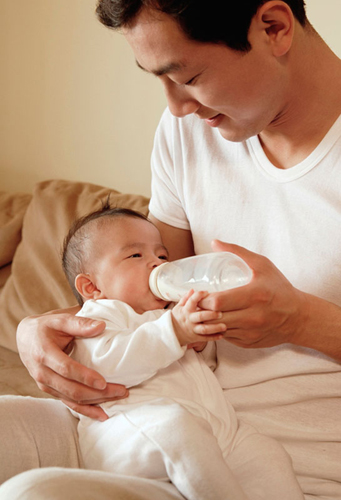
Bathtime can be fun for you and your baby. The more time you
spend handling and interacting with your child, the more confident you
will become, and your child will feel secure, too.
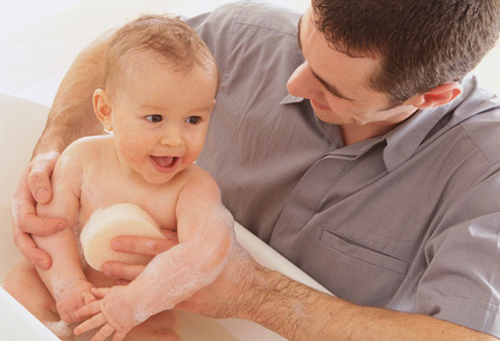
Learning to change a diaper takes a little practice, but it’s an essential childcare skill.
